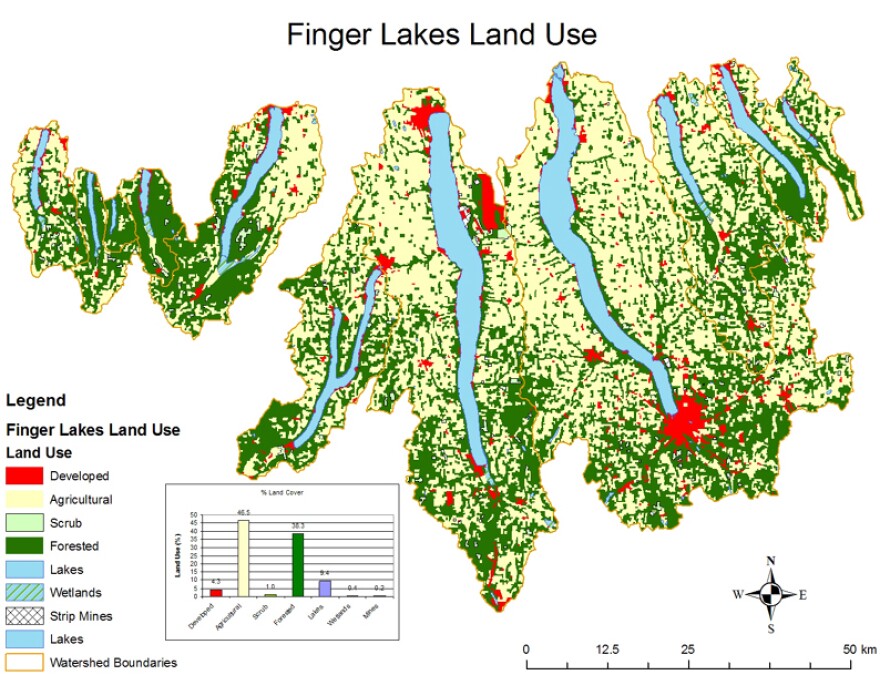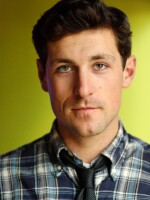http://stream.publicbroadcasting.net/production/mp3/wxxi/local-wxxi-978738.mp3
The Finger Lakes Institute at Hobart and William Smith Colleges hosted a two-day conference this week. The topic: dealing with hydrofracking when it comes to New York.
Conference organizers said the goal of the event was to identify ways to prevent the worst aspects of high-volume horizontal hydraulic fracturing. But it was also aimed at identifying ways to maximize the best aspects.
"We are not working on building the wall to prevent hydrofracking as much as we are working on creating or stockpiling the weapons behind the wall," says Beth Kinne, the environmental studies professor (and lawyer) who organized the event. "[It's about] creating the tools that will mitigate the negative impacts."
Aimed at moderates, the conference - titled Proactive Approaches to Mitigating Impacts of Marcellus Shale Development - was heavy on facts and light on drama. The words "planning" and "regulation" were used readily and often.
The cautionary tale
John Quigley was the conference's keynote speaker. Until earlier this year he was in charge of Pennsylvania's Department of Conservation and Natural Resources.
When it comes to hydrofracking, Quigley admits Pennsylvania has made more than its fair share of mistakes.
"New York's going to have to make its own decisions," Quigley says, "but if anything I think Pennsylvania has demonstrated that there are as many opportunities as there are threats."
On the "threats" side of the ledger are a slew of environmental and health concerns, says Quigley.
On the "opportunities" side, Quigley says natural gas is a cleaner alternative that can "turn coal off" and help fight global warming.
"There's been so much hyperbole around this issue on all sides," Quigley says. "The industry touting its benefits, saying, 'Trust us.' Some in the environmental community being completely against the process, ignoring things like climate change. We have to get to a rational discussion - and that's difficult."
Quigley says Pennsylvania is now playing catch-up with a drilling industry that had outflanked state regulators. He says New York needs to learn from the Keystone State's blunders.
The old guard
Stuart Gruskin was a commissioner at New York's Department of Environmental Conservation (DEC) when the agency issued its first draft of fracking regulations back in 2009.
Gruskin says the environmental concerns around hydrofracking are real, and that New York has benefited from a "think first, drill later" approach.
"New York has a window of opportunity," Gruskin says, to make sure it can "take the best advantages of the boom part of this and to mitigate the consequences of the bust part of this."
Gruskin says mineral extraction in New York is nothing new. (According to figures presented by Gruskin, there were 13,534 oil and gas wells in the state in 2010.) But he says the difference between previous drilling and hydrofracking is scale. That key difference is what's driven the lengthy regulatory process, says Gruskin.
Like Quigley, Gruskin also railed against the "hyperbole" surrounding fracking. But he says he understands why it gets people so riled up.
"It's a big deal because each of these propositions are true: there's potential for environmental harm, there's potential for economic prosperity and there's potential for sound energy policy," Gruskin says. "When you put all those together, you get people with very strong feelings expressing them in different ways."
The unconvinced
Mark Morris is with the Yates County Legislature. He's also with the Keuka Lake Association.
He says Yates County had asked for the type of exemptions that the New York City and Syracuse watersheds received earlier this month. (Former DEC commissioner Gruskin says those two watersheds were singled out early in the review process because they're the only sources of unfiltered drinking water in the state.)
Given that Yates County wasn't granted exemptions for its Finger Lakes, Morris says the county is considering its alternatives.
"We're concerned that we get necessary protection so that we don't damage the lakes," says Morris. "You have a couple million people that drink the water out of various Finger Lakes."
Morris says New York should pursue hydrofracking. But he says the safety protections need to be airtight.
Update
We put together a TV package about the conference for WXXI-TV's Need To Know Rochester. Below, you can watch that and a conversation about fracking and other local energy issues with the Democrat and Chronicle's Steve Orr.





